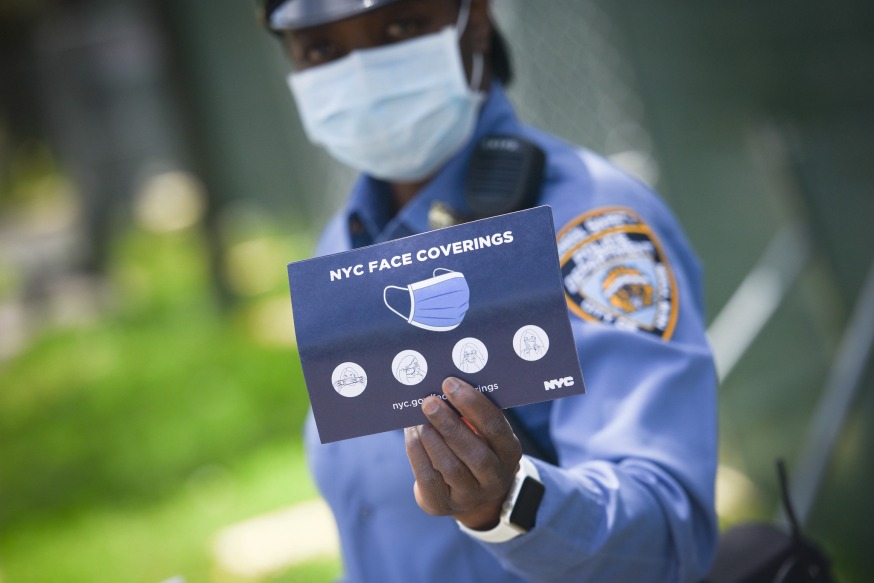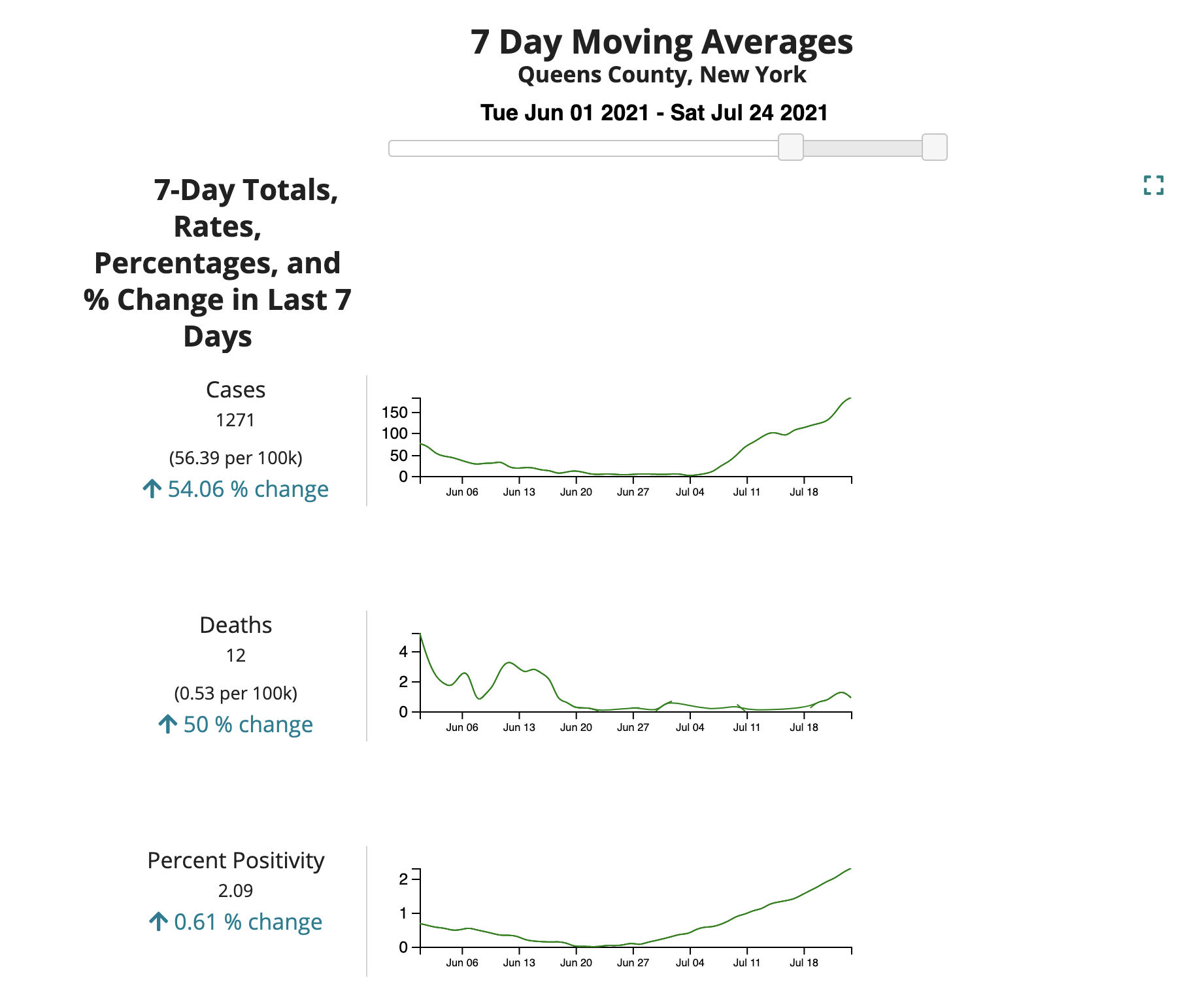
(Michael Appleton/Mayoral Photography Office)
July 29, 2021 By Allie Griffin
The Centers for Disease Control and Prevention (CDC) has determined that Queens residents, even those fully vaccinated, should wear masks indoors as COVID-19 cases are rising in the borough.
The CDC issued a recommendation Tuesday that residents in more than 2,100 counties across the country — including Queens — should wear masks in indoor public settings regardless of their vaccination status.
The federal agency said the new recommendation applies to counties that it qualifies as areas of substantial community transmission — like Queens — or areas of high community transmission.
Counties, such as Queens, are deemed to have “substantial community transmission” when there are between 50 and 99 new cases of COVID-19 per 100,000 people in the past seven days.
Counties with “high community transmission” have had more than 100 new cases of the virus per 100,000 people in the past seven days.
All five boroughs meet one of these classifications, with Manhattan, Brooklyn and the Bronx also deemed areas of substantial community transmission. Staten Island, meanwhile, has high community transmission.
The CDC has issued new mask guidance for individuals in substantial or high-transmission areas and K-12 schools. pic.twitter.com/2lqRxYSIGg
— The White House (@WhiteHouse) July 27, 2021
The recommendation represents a switch from the CDC’s previous policy. The agency had only recommended mask use indoors for the unvaccinated prior to Tuesday.
The change comes amid the growing prevalence of the highly-contagious delta variant and the increase in “breakthrough cases” or people who are vaccinated and contract COVID-19. The delta variant now accounts for the vast majority of coronavirus cases in the U.S.
The five boroughs are among the more than 60 percent of counties nationwide that have high or substantial community transmission, according to the CDC. While the agency recommends universal mask use indoors for these counties, the localities ultimately decide whether to impose a mask mandate.
Mayor Bill de Blasio has not yet announced such a mandate in the city despite all five boroughs falling into the CDC’s recommended categories.
“We are assessing the new information from the CDC right now,” de Blasio said Wednesday morning. “We got it less than 24 hours ago, and it is complicated information, so our health team’s reviewing it and we’ll have more to say on it in the next few days.”
City health officials have repeatedly said they are focused on getting more New Yorkers vaccinated rather than mask usage as a way to fight COVID-19 and the new delta variant.
In Queens, 78.5 percent of eligible residents (age 12 and older) have had at least one dose of the coronavirus vaccine and 69.8 percent are fully vaccinated, according to CDC data.
Despite the relatively high rate, pockets of Queens have low vaccination rates and the virus is spreading.
Far Rockaway (11691), for example, has the lowest vaccination rate in the city — just 37.7 percent of its residents have gotten at least one dose, according to city data.
New COVID-19 cases, deaths and hospital admissions have all increased in Queens over the past seven days, according to CDC data.

(CDC)
The CDC also issued new guidance on mask wearing in schools Tuesday. The agency said that everyone should wear a mask in schools regardless of their vaccination status this fall.
New York City has already required universal mask use in schools as well as in hospitals, subways and buses, and residential congregate settings. Unvaccinated residents are required to wear a mask in all indoor public settings.
